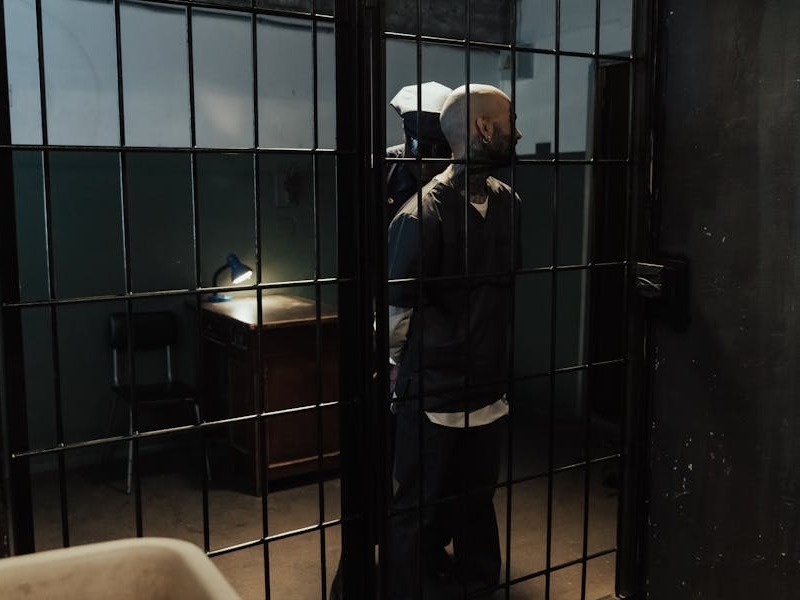How Federal Sex Crimes Are Investigated and Prosecuted

Sex crimes are some of the most aggressively prosecuted offenses in the United States, and cases charged at the federal level carry especially harsh penalties. If you’re under investigation by federal law enforcement or have already been indicted, it’s critical to understand the gravity of the situation and what you’re up against.
At Dawson Law Office, our federal crimes attorneys have decades of experience defending clients against sex offense allegations in U.S. District Courts nationwide. Below, we provide an overview of the most common federal sex crimes, their potential penalties, and how an experienced lawyer can help protect your rights and freedom.
Federal Jurisdiction Over Sex Crimes
Most sex offenses are prosecuted at the state level, but certain factors can result in federal charges. Generally speaking, a sex crime becomes a federal offense when it involves:
- Crossing state lines
- Occurring on federal property
- Use of the Internet, mail, or interstate commerce
- Offenders or victims who are federal employees
- Child exploitation or pornography
- Sex trafficking or prostitution rings
- Assaults within the maritime or territorial jurisdiction of the U.S.
Federal law enforcement agencies like the FBI and ICE conduct extensive investigations into suspected sex crimes, often using undercover agents, electronic surveillance, and confidential informants. By the time charges are filed, the government usually has a well-developed case.
Key Federal Sex Crime Statutes
Federal sex offenses are prosecuted under Title 18, Chapter 109A of the United States Code. Some of the most frequently charged crimes in this chapter include:
Sexual Abuse (18 U.S.C. § 2242)
This statute criminalizes knowingly causing another person to engage in a sexual act by threatening or placing that other person in fear. It also prohibits inducing a person to engage in a sexual act by administering intoxicants or other substances that impair the person’s ability to control their conduct.
Sexual Abuse of a Minor (18 U.S.C. § 2243)
Federal law prohibits knowingly engaging in a sexual act with a person who is at least 12 years old but younger than 16, as long as the offender is at least 4 years older than the victim. An attempt or conspiracy to commit this offense is also unlawful.
Abusive Sexual Contact (18 U.S.C. § 2244)
It’s a federal crime to knowingly engage in or cause sexual contact with or by another person if doing so would violate the sexual abuse statutes if the contact had been a sexual act. Essentially, this prohibits any sexual touching without consent or with a minor.
Sexual Exploitation of Children (18 U.S.C. § 2251)
Persuading, inducing, enticing, or coercing any minor to engage in sexually explicit conduct for the purpose of producing visual depictions of that conduct is a serious federal offense. This statute also criminalizes a parent or guardian permitting their minor child to engage in such conduct.
Certain Activities Relating to Material Involving the Sexual Exploitation of Minors (18 U.S.C. § 2252)
Federal law prohibits knowingly transporting, receiving, distributing, or possessing any visual depiction of a minor engaging in sexually explicit conduct. This includes pornographic images and videos transmitted or stored electronically.
Penalties for Federal Sex Crime Convictions
Sentencing in federal sex offense cases is governed by the U.S. Federal Sentencing Guidelines. These are advisory rules that provide a uniform sentencing policy for defendants convicted in U.S. District Courts.
Under the guidelines, each offense is assigned a base level that reflects its seriousness. This base level is then adjusted up or down based on specific offense characteristics and the defendant’s criminal history. The final offense level corresponds to a sentencing range in months of imprisonment.
However, many federal sex crimes also carry mandatory minimum prison terms set by statute. For example:
- Sexual Abuse: Up to life in prison if the offense involved threats, force, or rendering the victim unconscious; up to 20 years in all other cases
- Sexual Abuse of a Minor or Ward: Up to 15 years
- Abusive Sexual Contact: Up to 10 years if the victim is 12 or older; up to life if the victim is younger than 12
- Sexual Exploitation of Children: 15 to 30 years
- Trafficking in Child Pornography: 5 to 20 years
In addition to lengthy prison sentences, convicted sex offenders usually face decades of supervised release, thousands of dollars in fines and restitution, and mandatory treatment programs. They may also be civilly committed as sexually dangerous persons after completing their prison terms.
Sex Offender Registration & Other Collateral Consequences
One of the most severe and long-lasting consequences of any sex crime conviction is mandatory registration as a sex offender. Federal law requires states to maintain public registries of individuals convicted of qualifying offenses, including rape, sexual assault, child molestation, and possession of child pornography.
Depending on their risk classification level, registered sex offenders must regularly verify their address and other identifying information with local law enforcement for a minimum of 10 years and up to life. Failure to comply is itself a felony offense that can result in additional prison time.
The stigma of being on the public registry makes it extremely difficult for convicted sex offenders to find employment, housing, and even personal relationships. They may also be subject to residency restrictions prohibiting them from living within a certain distance of schools, parks, and other places where children congregate.
Aside from registration, a federal sex crime conviction can have other devastating collateral consequences such as:
-
- Loss of professional licenses
- Disqualification from government assistance programs
- Termination of parental rights
- Restrictions on owning firearms
- Deportation for non-citizens
- Civil commitment as a sexually violent predator
A felony record follows you for life, impacting everything from job applications to housing rentals to personal relationships. That’s why it’s so critical to aggressively fight federal sex crime charges and avoid a conviction if at all possible.
Get Help from an Experienced Federal Sex Crimes Attorney Now
If you’re facing federal sex offense charges, the stakes couldn’t be higher. Your freedom, reputation, and entire way of life are on the line. The government has virtually unlimited resources to investigate and prosecute these cases, and federal sentences are notoriously harsh.
You need an experienced criminal defense lawyer who knows the federal system inside and out and has a track record of success in sex crimes cases. At Dawson Law Office, we’ve spent years defending clients against even the most serious federal sex offense allegations. We know what it takes to level the playing field and achieve the best possible outcome.
Don’t wait another day to start building your defense. The sooner you contact us, the sooner we can intervene with investigators and start advocating for your rights.



